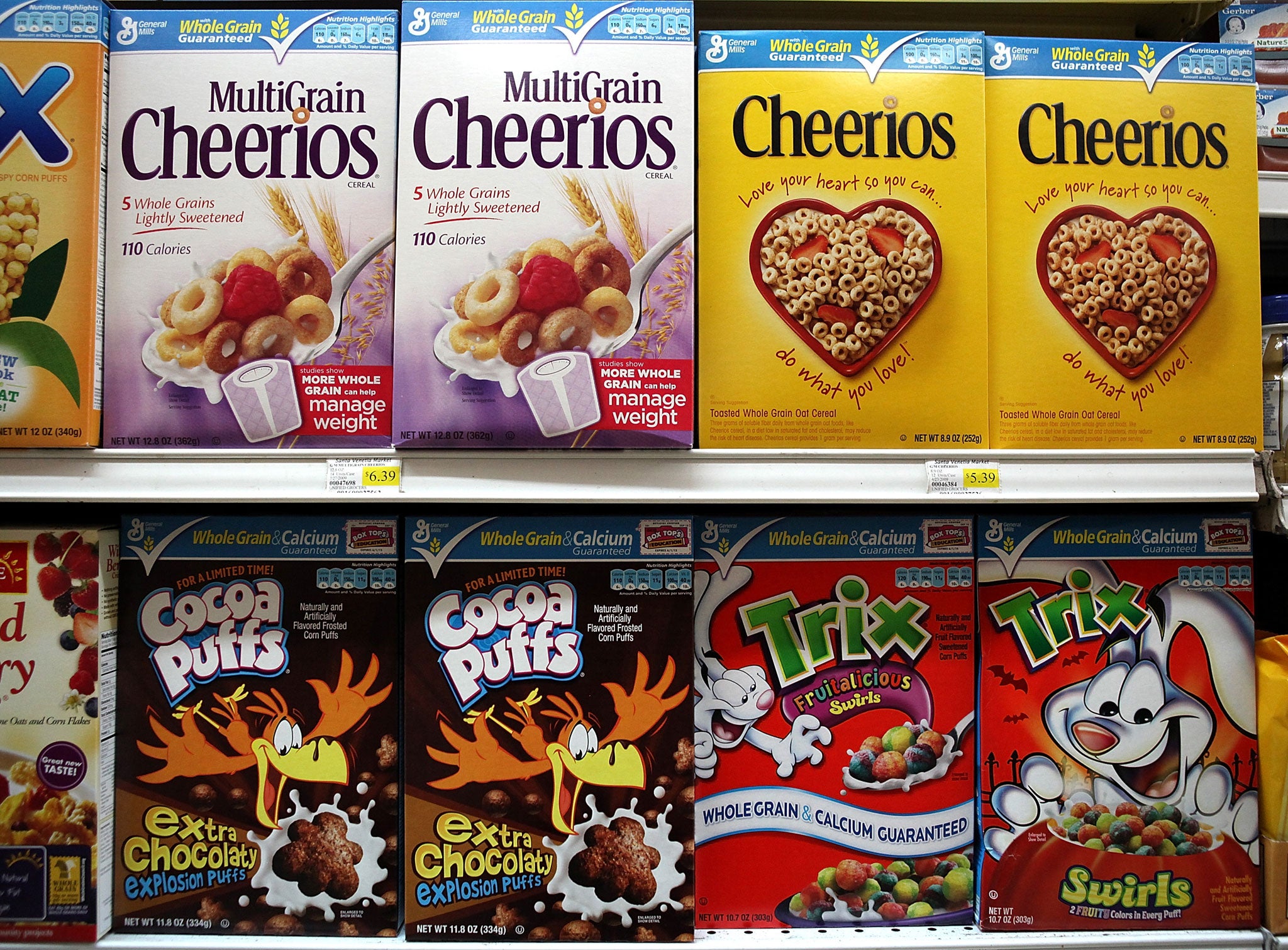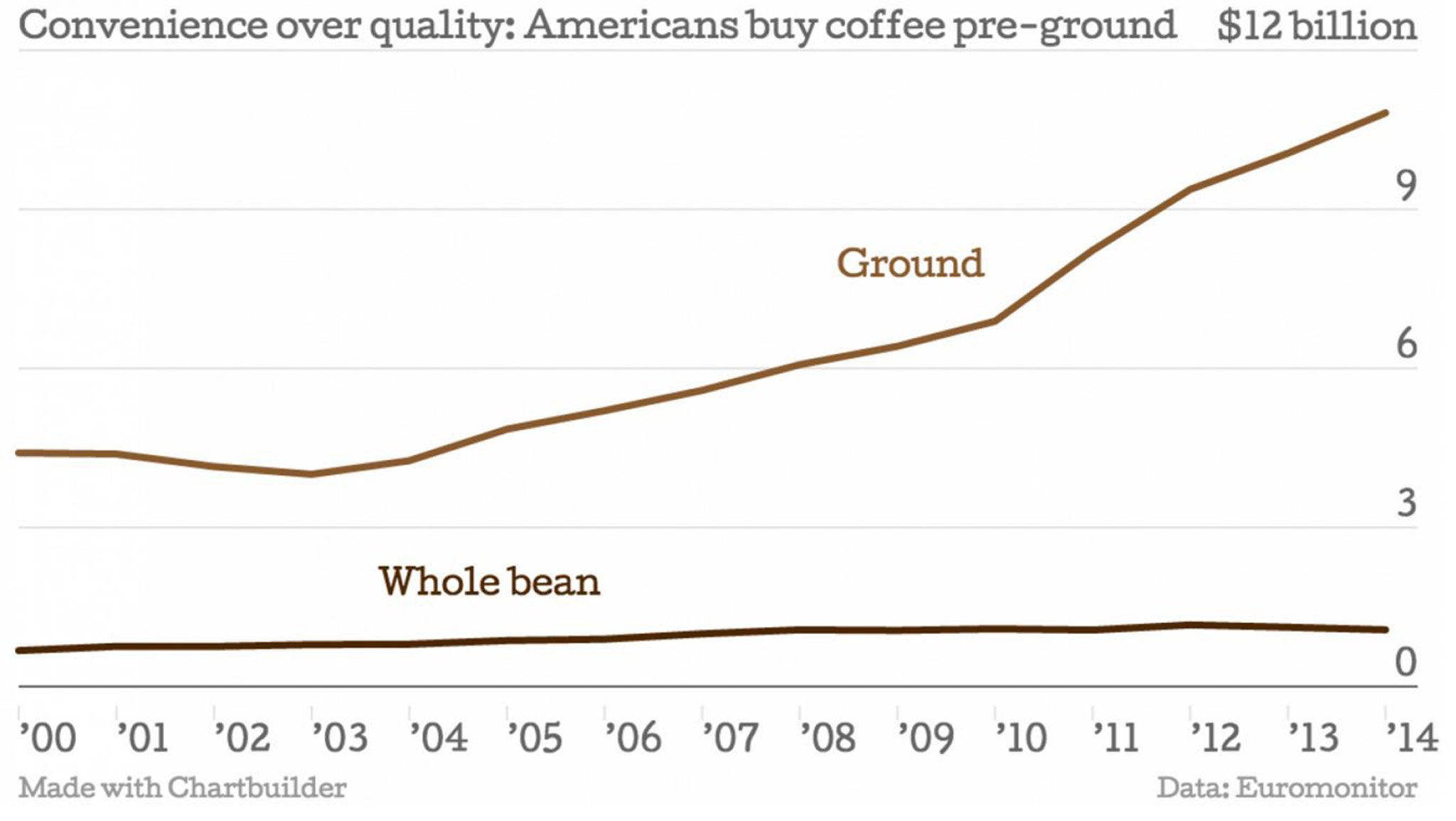The Independent's journalism is supported by our readers. When you purchase through links on our site, we may earn commission.
Why many millennials don't eat cereal
Eating breakfast cereal means using a bowl, and bowls don't clean themselves

Your support helps us to tell the story
From reproductive rights to climate change to Big Tech, The Independent is on the ground when the story is developing. Whether it's investigating the financials of Elon Musk's pro-Trump PAC or producing our latest documentary, 'The A Word', which shines a light on the American women fighting for reproductive rights, we know how important it is to parse out the facts from the messaging.
At such a critical moment in US history, we need reporters on the ground. Your donation allows us to keep sending journalists to speak to both sides of the story.
The Independent is trusted by Americans across the entire political spectrum. And unlike many other quality news outlets, we choose not to lock Americans out of our reporting and analysis with paywalls. We believe quality journalism should be available to everyone, paid for by those who can afford it.
Your support makes all the difference.Few things are as painless to prepare as cereal. Making it requires little more than pouring something (a cereal of your choice) into a bowl and then pouring something else (a milk of your choice) into the same bowl. Eating it requires little more than a spoon and your mouth. The food, which Americans still buy $10 billion of annually, has thrived over the decades, at least in part, because of this very quality: its convenience.
And yet, for today's youth, cereal isn't easy enough.
On Monday, the New York Times published a story about the breakfast favorite, and the most disconcerting part was this:
Almost 40 percent of the millennials surveyed by Mintel for its 2015 report said cereal was an inconvenient breakfast choice because they had to clean up after eating it.
The industry, the piece explained, is struggling — sales have tumbled by almost 30 percent over the past 15 years, and the future remains uncertain. And the reasons are largely those one would expect: Many people are eating breakfast away from the home, choosing breakfast sandwiches and yogurt instead of more traditional morning staples. Many others, meanwhile, too busy to pay attention to their stomachs, are eating breakfast not at all.
But there is another thing happening, which should scare cereal makers — and, really, anyone who has a stake in this country's future — more: A large contingent of millennials are uninterested in breakfast cereal because eating it means using a bowl, and bowls don't clean themselves (or get tossed in the garbage). Bowls, kids these days groan, have to be cleaned.
Cereal isn't the only food suffering from a national trend toward laziness. Coffee has suffered a similar fate. Despite talk of a third wave of coffee, which values quality above all else, and basks in artisanal rather than effortless methods of preparation, Americans still covet convenience above all else.
"Convenience is the one thing that’s really changing trends these days," Howard Telford, an industry analyst at market research firm Euromonitor, said last year.
Less than 10 percent of the coffee beans Americans buy are fresh whole beans. And ground coffee isn't just outpacing whole bean coffee — it's increasing its lead, each and every year.

The rise of coffee pods, which come pre-ground and produce a cup of brown caffeinated water with the push of a button, is further evidence of the country's desire for convenience. Sales of coffee pods grew by 138,324 percent between 2004 and 2014, according to data from Euromonitor.
The popularity of delivery, meanwhile, speaks to the same tendency toward convenience. Roughly 15 percent of restaurant meals are delivered today, according to data from Technomic. But among millennials the percentage is higher: more like 20 percent.
The reason why convenience is increasingly important isn't merely because people are lazy — many actually need it.
Families are working more than ever. Almost two-thirds of households are supported by two working parents today, according to the latest government data, which is the highest reading on record. The less time families have to prepare food or sit down at restaurants, the more convenience hovers over decisions about food, especially when there is an option that is easier. Dinner, which isn't being cooked at home as often as it used to, is among the trend's many casualties. Less than 60 percent of suppers served at home were actually cooked at home last year. Only 30 years ago, the percentage was closer to 75 percent.
But there is something different about the backlash against cereal bowls, something more foundational about it that seems to speak to a greater truth about American households today.
A 2014 national survey, conducted by Braun Research, found that 82 percent of parents said they were asked to do chores as children. But when they were asked if they required their children to do chores, only 28 percent of them said yes.
And this generational shift in how families raise their kids seems to be turning even the most mundane of responsibilities, like doing the dishes, into unthinkable nuisances.
Ultimately, cereal makers will settle on a strategy for reversing the industry's downward trend. Among the likeliest routes are embracing the fact that many people are eating the food at times other than breakfast, often as a snack, channeling the food's nostalgic quality, which helped buoy the industry for years, and shifting to portable containers, which nearly half of millennials prefer, according to Mintel.
No matter the result, America's youth might have to reckon with the consequences of an age in which it's no longer worth eating a food when it means having to clean a plate. Maybe Soylent is the future after all.
Join our commenting forum
Join thought-provoking conversations, follow other Independent readers and see their replies
Comments